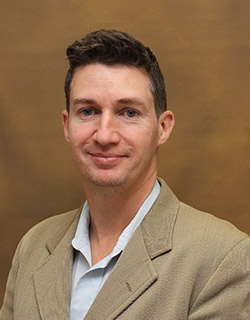Townhall COVID-19 with Ted Bailey - October 6, 2020
October 6, 2020Seven months into the pandemic, COVID-19 is still very much a part of everyday life and there are many uncertainties as society tries to navigate through reopening and resuming normal activities. To answer some of the public’s questions, Theodore Bailey, MD, JD, MA, Chief, Division of Infectious Diseases at GBMC, participated in WBAL Radio’s Coronavirus Townhall and provided clarity about vaccinations and testing. He also gave advice for returning to sports.
The FDA recently announced that an additional two months of observations will be required to determine whether or not a COVID-19 vaccine is safe. When asked what he thought of this announcement, Dr. Bailey responded by saying: “I think this is an excellent policy. That’s the kind of attention to detail and scientific data that we would want in anything that’s going to be rolled out in as large a quantity as this will be.” While many are eager to have a vaccine released as soon as possible, it is critical that researchers ensure the efficacy and safety of any vaccine before it is distributed to the public. “The whole point of doing a clinical trial is so that any defects – things that are not helpful or are potentially harmful – are caught at an early stage where a limited number of people have been exposed to it rather than rolling it out to millions of people and then finding out that there is some danger to it,” he explained.
Dr. Bailey emphasized that people need to remain vigilant, even with one or more pending vaccines. While he is confident that a vaccine approved by the FDA will be safe and effective, no vaccine is 100% effective and there is not yet a set timeline for mass distribution of vaccinations.
The conversation then shifted to COVID-19 and antibody testing. Dr. Bailey explained the differences between the two kinds of testing and how effective each is. He reminded listeners that testing is not perfect and should not replace safety measures like mask wearing, hand washing, and physical distancing. It is possible to receive false negatives from COVID-19 tests and scientists have not been able to prove that the presence of antibodies means a person has developed immunity. “We’d like to say that a person is immune, but we have not been able to make that link yet in a conclusive or convincing way,” he said.
This topic has become especially relevant with sports. “This situation is certainly destabilizing to the normal conduct of sports practice and competition,” Dr. Bailey expressed. Testing plays an important role in keeping professional sports safe, but the most important thing to prevent the spread of COVID-19 across teams is to isolate the individuals that become infected and have those in close contact with them quarantine. “In a sports context, that could essentially mean shutting down the team,” he explained. “You need to take the individuals who have been in close contact with each other and have them step away from the other individuals who were not in such close proximity.”




